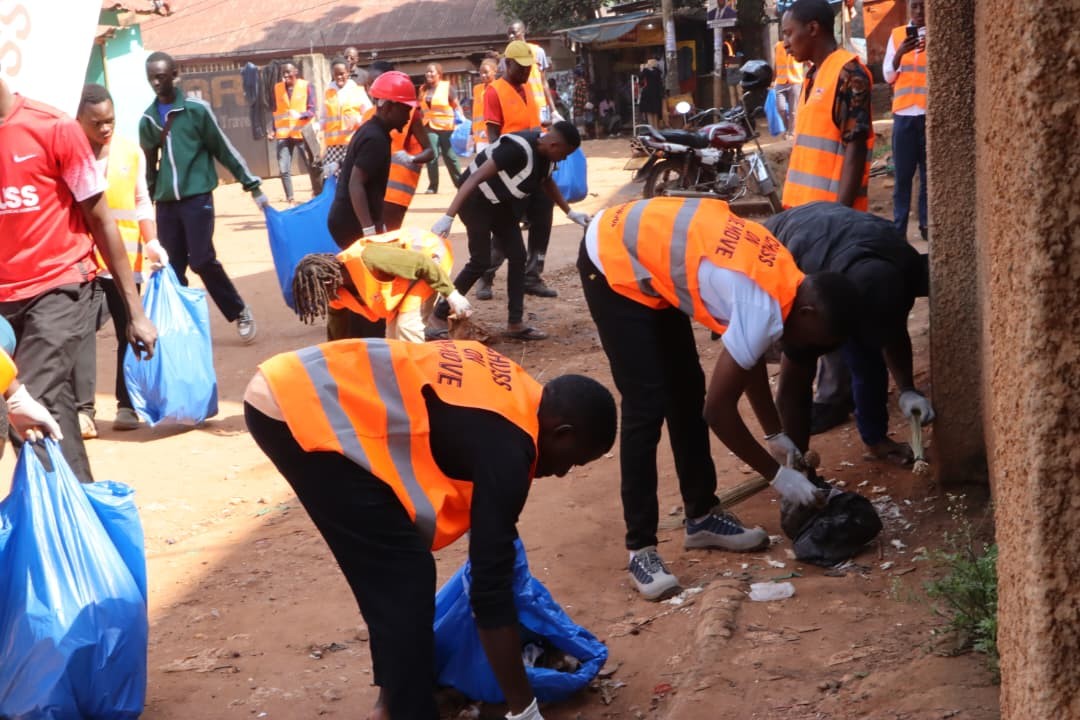By Ritah Atukwatse
2nd Year Journalism and Communication Student
Makerere University, Kampala
Saturday, August 30, 2025
In a demonstration of civic responsibility and environmental stewardship, students from the College of Humanities and Social Sciences (CHUSS) at Makerere University joined forces with student leaders and class representatives across various colleges to spearhead a large-scale community clean-up in Kikoni, Kampala. The event took place on Saturday, June 30, 2025, with the primary goal of improving sanitation and promoting a cleaner environment in one of the university’s most densely populated student neighborhoods.
The initiative was organized under the leadership of CHUSS Chairman Ambrose Woti, who emphasized the importance of environmental consciousness among students and the broader community. The clean-up exercise officially kicked off at 8:30 a.m., beginning at the CHUSS quadrangle and progressing through Douglas Villa Lane, Olympia, and concluding at Nalika Lane.
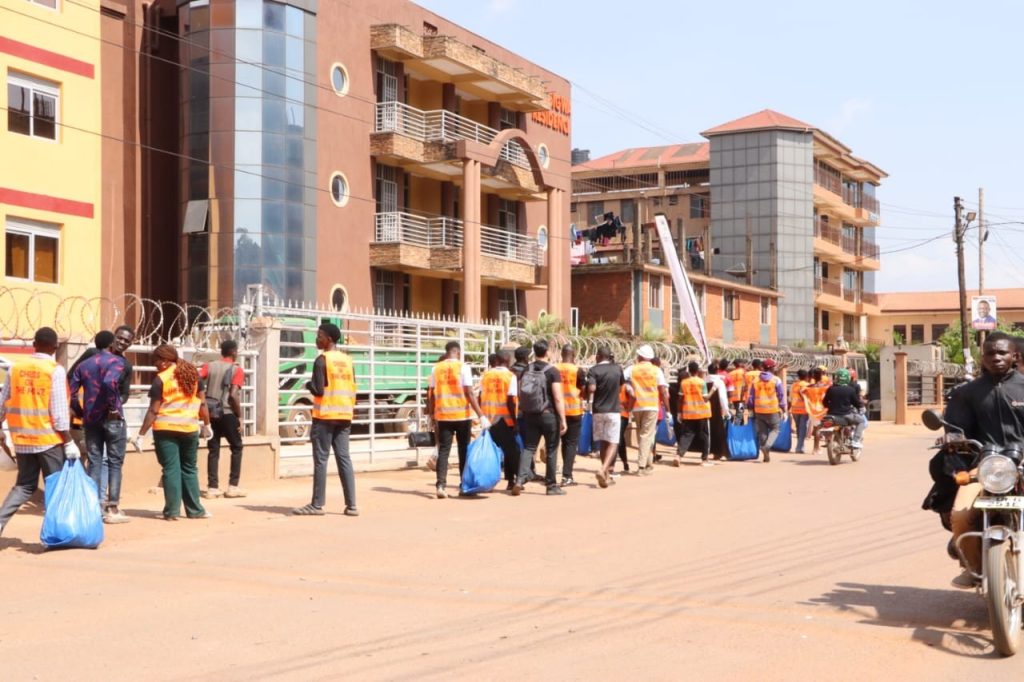
Equipped with gloves, reflectors, and other cleaning gear, participating students diligently collected litter, including plastic bottles, polythene bags, and various non-biodegradable materials scattered across trenches and pathways. The collective effort not only enhanced the physical appearance of Kikoni but also raised awareness about the long-term environmental hazards posed by improper waste disposal.
While some Kikoni residents expressed curiosity about the initiative—with one asking, “Has Makerere University paid these students to collect plastics?”—the presence of determined students in action prompted further dialogue. Another resident speculated, “I think they want them for their projects.” The event, however, was purely voluntary and driven by a shared sense of responsibility.
Chairman Ambrose Woti took the opportunity to remind students and the public alike of the dangers associated with irresponsible waste disposal, stressing that most of the materials collected are non-degradable and pose a threat to the local ecosystem.
“This exercise was about more than just cleaning up the area,” said Emmanuel Ikongo, GRC of the School of Social Sciences. “Not everyone will learn from what we have done today, but there is at least one person who will learn from us.”
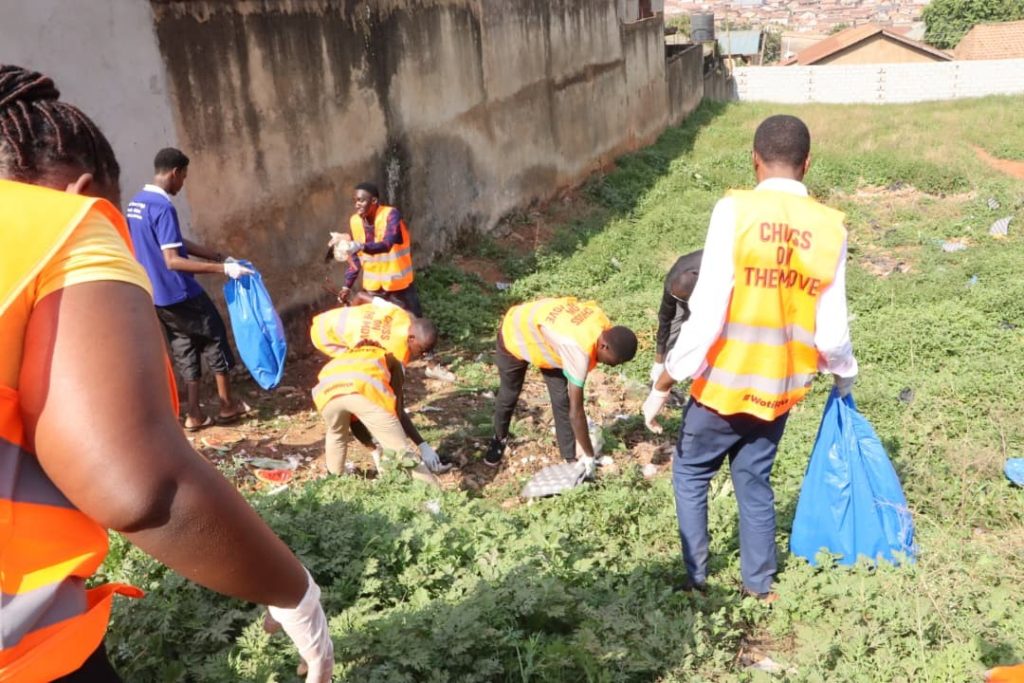
The clean-up drew a diverse crowd of participants, including students from different colleges and year groups. First-year students brought energy and enthusiasm, while second- and third-year students contributed leadership and experience. Notably, the effort included student leaders, representatives from various CHUSS schools, and volunteers from other colleges at Makerere University, underscoring a strong spirit of unity and collaboration.
Upon completion of the exercise, participants were treated to refreshments, including water, cakes, and eggs, to celebrate their efforts and recharge.
Leadership, Responsibility, and a Call to Action: Woti’s Vision Behind the Clean-Up
CHUSS Chairman Ambrose Woti revealed that the initiative stemmed from a growing concern for the deteriorating sanitary conditions in Kikoni, where a large number of Makerere University students reside. He explained that as young leaders, students have a duty not only to excel academically but also to take meaningful action within their communities.
“Our main motivation was to improve sanitation in Kikoni,” Woti stated. “This is where most of our students live, and we felt a responsibility to make it cleaner and safer. A clean environment promotes good health, prevents diseases, and provides a more comfortable space for studying and living.”
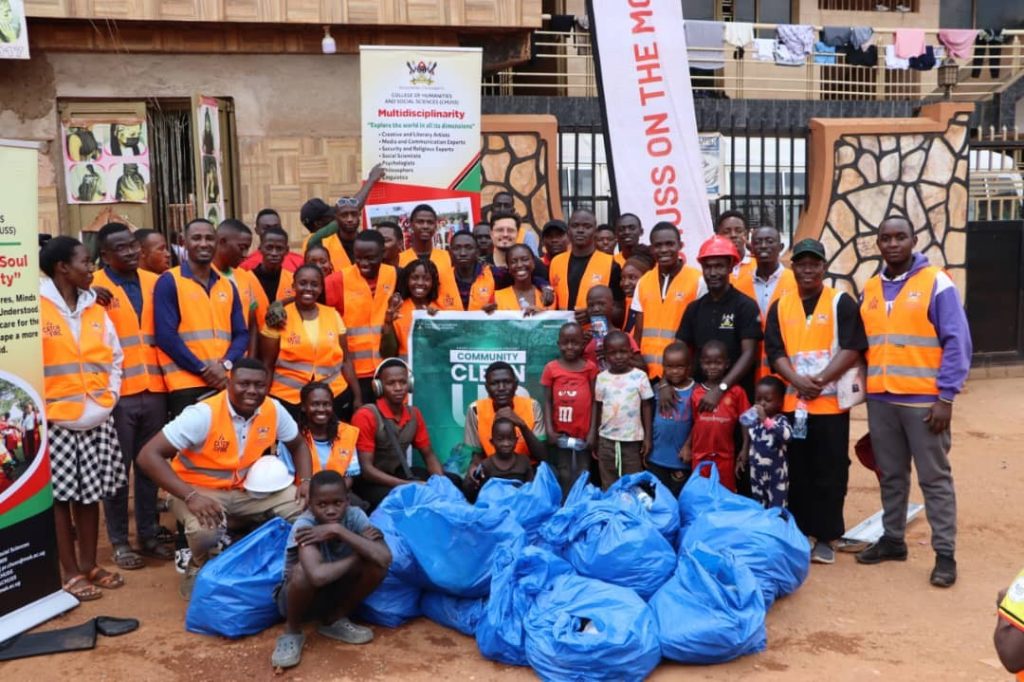
He pointed out that Kikoni’s growing population has exacerbated waste management issues, with littering and blocked drainage systems becoming more frequent. “We chose Kikoni because it’s the heart of student life outside the university gates. The problems here directly affect our welfare,” he added. “We knew that by targeting Kikoni, we could make an immediate and visible impact.”
Woti also praised the wide participation from the student body, noting how the enthusiasm of younger students combined well with the leadership of senior peers. “The turnout was impressive. First-year students came in with so much energy, and senior students helped guide the process. We even had volunteers from other colleges beyond CHUSS, which shows that students across the university care about our community.”
Equally important to the success of the event, he said, was the involvement of the Kikoni community itself. “The local residents were very supportive. Some joined us, others provided tools like brooms and spades, and a few even helped us carry the garbage,” Woti shared. “It was encouraging to see that they appreciated what we were doing.”
He concluded with a call for continued student-led action: “We should not wait for institutions or authorities to do everything. We have the power to lead by example. It starts with us, in our hostels, in our neighborhoods, and in how we treat the environment.”
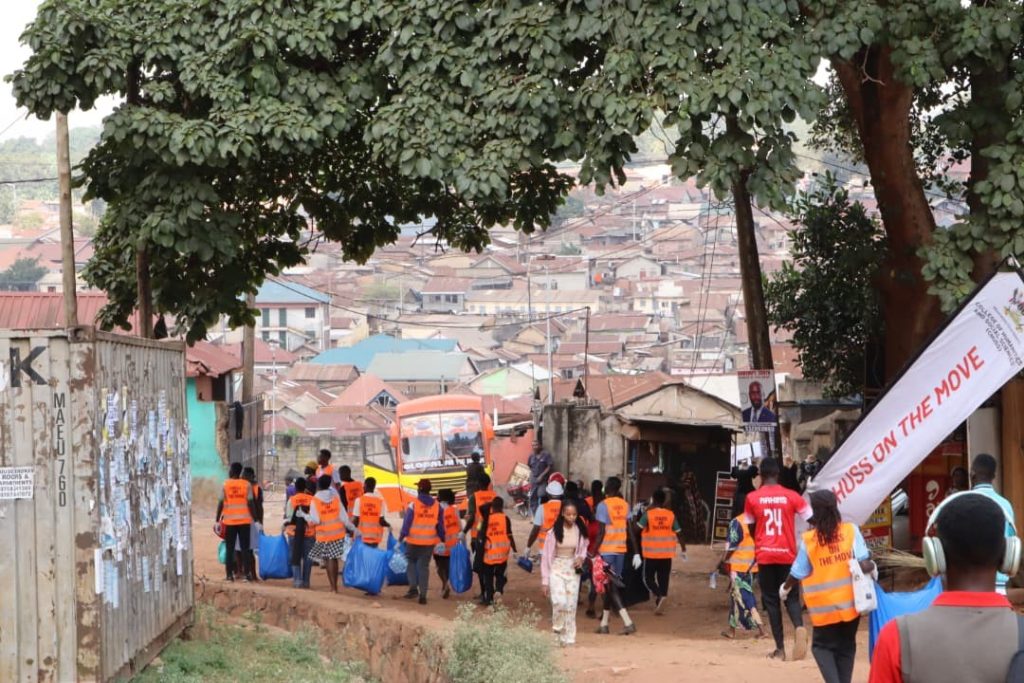
The Kikoni clean-up not only left a visible mark on the area but also served as a reminder of the collective responsibility shared by students and residents alike. As the brooms were laid down and the last bags of garbage hauled away, what remained was a powerful message: change starts with those willing to act.

